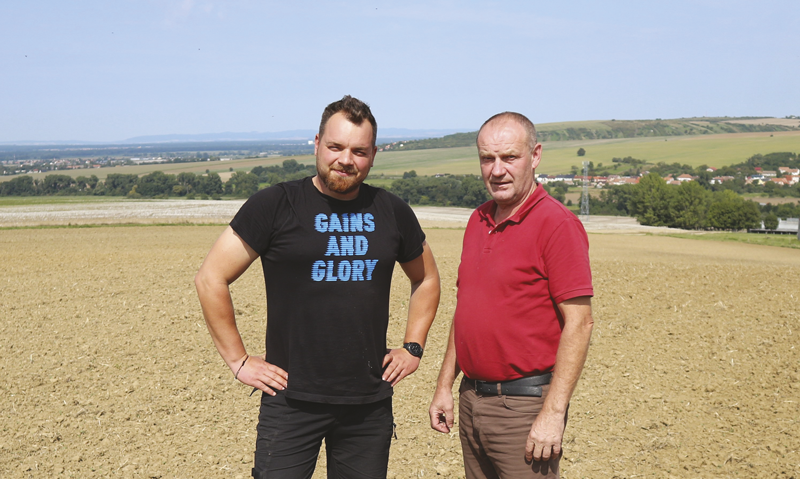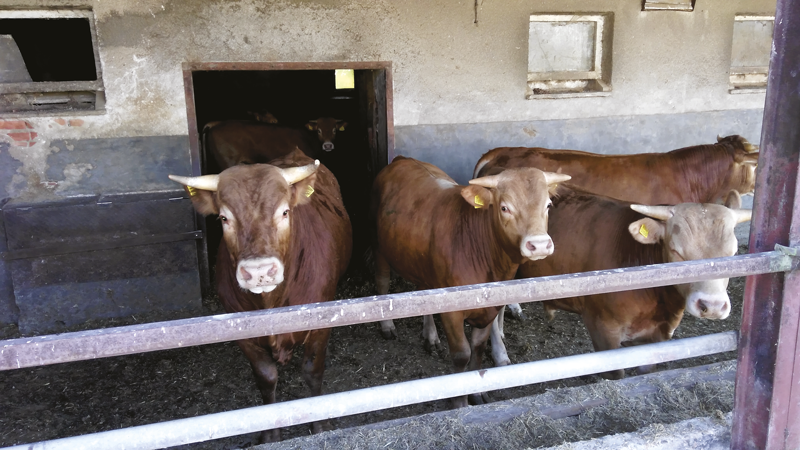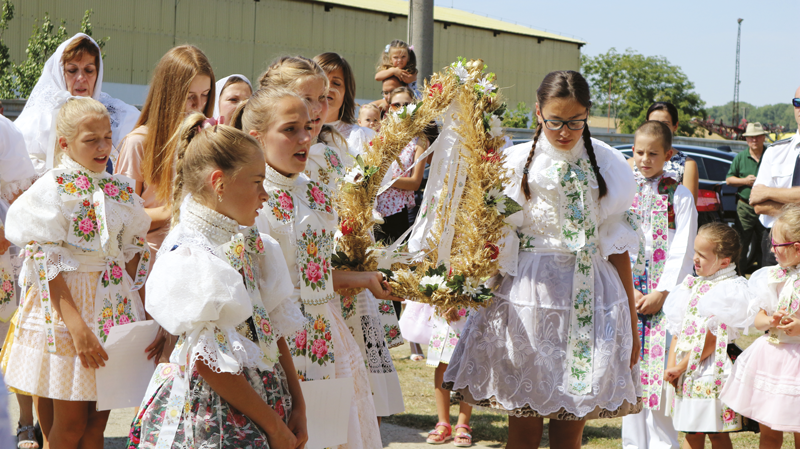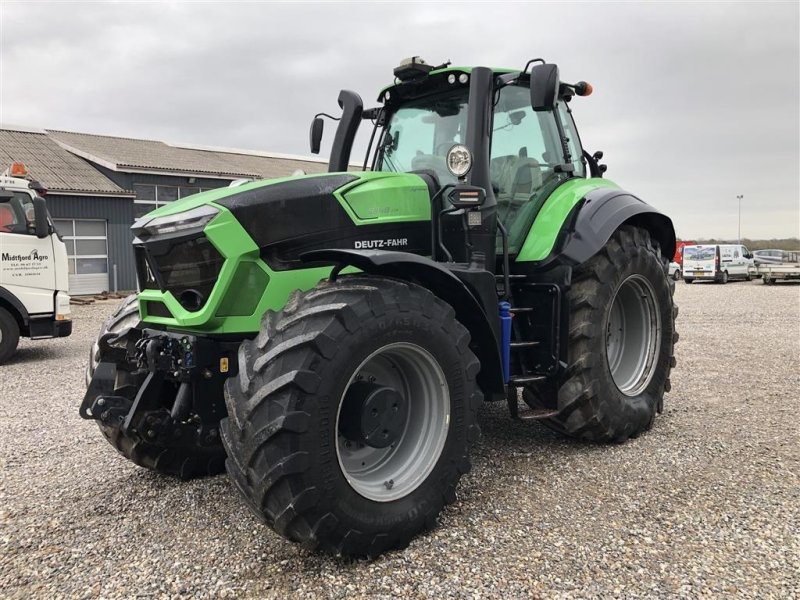Top Agro is the most prestigious management competition in the Slovak agri-food complex. It's organized by the Club of Agricultural Journalists under the auspices of the Ministry of Agriculture and Rural Development of the Slovak Republic, and with the Slovak Agriculture and Food Chamber.
Almost a thousand farmers - that work in various forms of business - annually take part in the competition, with contenders including trading companies, agricultural cooperatives, as well as self-employed farmers – small and large landowners. The top 100 is compiled annually by the Research Institute of Agriculture and Food of the National Agricultural and Food Centre. Farmers from Záhorie also succeeded in this competition, and thanks to their economic results the Popudinské Močidľany Agricultural Cooperative received the highest award for work by management in their category. We asked the chairman of the board at PD Popudinské Močidľany, Ing. Pavel Tokoš, for the secret of their success.
You enjoyed success at the Top Agro Slovakia competition both
in 2019 and in 2020, so it can't be by chance. What's behind the
results that rank you among the best farms in Slovakia?
Daily responsible work by every single worker, combined with favourable weather for the cultivated structure of crops.
Do you have a recipe for success at PD Popudinské Močidľany that others could follow? What do you do differently and better?
There's
no miracle formula. However, the people who work for us view
agricultural production not only as their job but also as a life
mission. And they make good use of their long experience and
professional knowledge, led by the agronomist Ing. Tomáš Duffek. It's
worth mentioning that the whole company's operation rests on the
shoulders of seven people who take care of the animals and operate the
machinery.
What's your priority: crop production or animal husbandry? Our priority is crop production. As part of the revitalization of land resources and diversification of growing risks, we now grow eight crops on a 900-hectare farm. This turns professional crop selection, optimization of sowing plan, treatment of crops during the growing season, and even the actual harvest into challenging processes. Our crop production strategy is connected with animal husbandry, where we focus on raising cattle without marketable milk production of the Scharloais breed. We currently keep about 300 such animals.
Do you think that it pays off to specialize in a certain type of production, or should a farm engage in various activities?
I
think each farm's management must decide based on local conditions. At
PD Popudinské Močidľany, primary production is our main focus and where
we target optimal yields. Such yields have been above-average in the
last two years, and in 2020 we beat our agricultural cooperative's
historical best. Our average yields were 9.4 t/ha for wheat, 8.3 t/ha
for winter barley, and 12.2 t/ha for maize. We also achieved high food
parameters in wheat and barley, and the trend of previous periods has
also been confirmed by crop results so far in 2021. We also put achieved
yields and their quality to good use by growing and producing farm
seeds, thereby aiming to optimize the costs of future harvests.
Doing business under the conditions of Slovak agriculture is a
challenge, and many farming enterprises are in the red. That probably
doesn't apply to you. How do your economic results look?
Crop
production has the lion's share in our business management, we
generated sales of €960,000 in 2020 with total revenues of €1.01 million
from primary production. We nevertheless also continued animal
husbandry because we are very passionate about it. After all, a "farmer"
without animals is not a "farmer" in the true sense of the word. When
our cooperative was taken over by Energy Group, a.s. in 2017, many
things changed in the production programme and in the cooperative's
trade policy. Energy Group, a.s. also includes another three farms.
Together we use the potential of input/output volumes, help each other
with mechanization, coordinate production activities to minimize costs,
and eliminate production and business risks. The stability of our
economic results is shown by achieved results in connection with
production on our business partners' land.
It's always the people who are responsible for economic
results. How does your company value your employees' work? How do you
motivate and appreciate them?
As I said, our workers are our
greatest asset - agriculture is their life mission. We seek to reward
them not only financially, but also with various benefits throughout the
year.
Does working in agriculture attract young people? Or do you mainly have older employees?
Workers'
age is a critical point of agricultural production, and we are not
alone in facing this problem. Despite great advances in technical
equipment, young people find it very difficult to start a career. Hence
the desperate struggle for young and promising workers in agriculture.
We're also undergoing generational change in the foreseeable future, so
it'll be vital to recruit more younger workers.
Agricultural tech has dramatically advanced in the last 30
years. Although clearly not everyone can drive a tractor or a combine
harvester... Do you have enough tractor drivers and combine harvester
operators?
Today's technology requires high professional
competence, which is a great challenge especially for young people. So I
hope they find a way into agriculture, despite the obstacles. This
links back to the previous question, but the essence of agricultural
production will be maintained through a positive attitude towards nature
and animals.
We have only recently published the sad news that Záhorie is
drying out due to climate change. Have you experienced this too? How do
you mitigate a lack of moisture?
A lack of moisture and
overall change in climatic conditions are having a major impact on the
growing environment. In our conditions, irrigation systems are out of
the question. Our task for the future is to provide water retention
measures by maintaining existing thickets and natural formations with
gradual landscaping focused on planting new natural obstacles – lines of
trees in cooperation with local hunting and horticultural societies.
That's the minimum we must begin to implement in the near future, aware
of the humility of our predecessors in agriculture – unless God works,
our work is in vain...
What's the outlook for Slovak agriculture?
Agricultural
business in our conditions is very demanding. The state's agricultural
policy has neither a clear vision nor rules, and a distorted image of
Slovak farming has very often been foisted on the public. I fear for the
future of our agriculture when I compare the economic conditions on a
European scale with the conditions in Slovakia. For the agricultural
sector as a whole, it is essential that agricultural policy and
developmental priorities are clearly defined. That will enable farmers
to decide which direction their activities will take.





